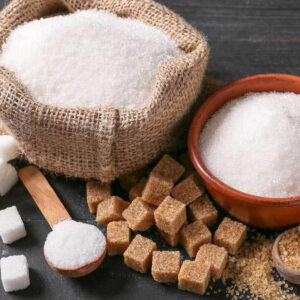The difference between beet sugar vs cane sugar extends beyond taste to how they are cultivated.
The difference between beet sugar vs cane sugar extends beyond taste to how they are cultivated.
Blog Article
Discovering the Differences in Uses and Advantages Between Beet Sugar Vs Cane Sugar
In the culinary globe, the choice in between beet sugar and cane sugar is not simply about sweet taste yet entails a nuanced consideration of taste, application, and effect. While both sugars stem from various plants, each undergoes unique manufacturing processes that discreetly influence their attributes and viability for different dishes. As cooks and consumers significantly prioritize both the ecological and flavor accounts of their ingredients, recognizing these differences comes to be vital. This exploration uses insight into just how each sugar type can best boost culinary developments.
Origins and Production Procedures of Beet and Cane Sugar

Walking cane sugar, on the various other hand, comes from the sugarcane plant, a tropical yard belonging to Southeast Asia today grown in exotic zones worldwide. The production of cane sugar begins with the harvesting of cane stalks, which are squashed to launch the juice. This juice is then boiled to focus it, after which it is rotated in centrifuges to produce raw sugar crystals. These crystals are additional fine-tuned to generate the white sugar commonly available in stores.

Nutritional Material and Health Considerations

When contrasting the nutritional material of beet sugar and cane sugar, it becomes obvious that both kinds basically give the same calorie worths, with about 16 calories per teaspoon and no considerable nutrient variety. Each is composed practically totally of sucrose, which is a basic carb that supplies quick energy however does not have vitamins, minerals, or fiber. This similarity includes their influence on wellness, particularly concerning blood sugar level levels. Both sugars, when consumed in excess, can add to raised blood sugar levels, a threat element for diabetes mellitus and various other metabolic disorders. Furthermore, too much consumption can result in weight gain and dental issues, as both sugars are similarly cariogenic, advertising dental caries. From a health perspective, moderating consumption of any kind of sugar, whether from beet or cane, is advisable to avoid these potential unfavorable results on health. Hence, neither holds a distinctive benefit over the other in terms of health benefits.
Taste Profiles and Culinary Applications
Regardless of their similar chemical frameworks, beet sugar and cane sugar differ discreetly in taste, which can affect their use here in various culinary contexts. Walking cane sugar typically lugs a tip of molasses, even in its refined type, providing a cozy, caramel-like touch that boosts baked items, coffee, and chocolate-based recipes. On the other hand, beet sugar is characterized by its extremely fine-tuned, neutral preference, making it a functional sugar that does not modify the taste profiles of dishes.
Environmental Effect and Sustainability
While both beet and cane sugars are obtained from plants, their environmental impacts differ considerably due to the distinct methods of cultivation and handling needed for each. Sugar beet growing typically entails considerable automation, which can increase fossil fuel consumption and carbon exhausts.
Additionally, the processing of sugarcane frequently produces a substantial quantity of waste, including bagasse, which, although useful as biofuel, often adds to air contamination if shed inefficiently. Sugar beet processing makes use of even more of the raw materials, causing look at this website less waste. Both sectors deal with challenges in lowering their environmental impacts, yet continuous developments in agricultural techniques and waste administration are intending to enhance sustainability.
Economic Factors Affecting the Sugar Sector
The economic characteristics of the sugar market are dramatically influenced by global market demands and profession plans. Elements such as tariffs, aids, and global trade contracts play crucial functions fit the affordable landscape. For example, in areas where sugarcane or sugar beet production is subsidized, producers might have a financial benefit that allows them to supply reduced prices on the worldwide market. This can create disparities in earnings and market accessibility for manufacturers in countries without such subsidies.
Additionally, variations in international need for sugar, affected by dietary trends and industrial usage in foodstuff, directly impact prices and manufacturing degrees. beet sugar vs cane sugar. Weather likewise play a critical role, as they can considerably affect plant returns and, as a result, the supply chain. This variability presents a degree of economic unpredictability that can bring about financial investment volatility in sugar production sectors, influencing choices from planting to market strategy
Verdict
In conclusion, both beet and cane sugar have one-of-a-kind high qualities that match different cooking requirements. While cane sugar conveys an abundant flavor perfect for improving baked products, beet sugar's neutrality is best link for lighter recipes.
Report this page